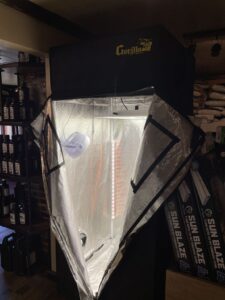Hydroponics for Beginners: An Introduction to the Basics of Hydroponic Gardening.
Feb 1
Hydroponic gardening is a novel method of growing plants that do not require the use of soil. Plants are instead cultivated in nutrient-rich water, which gives them all of the ingredients required for the development. Hydroponics O’Fallon IL gardening is an excellent method for growing plants in a controlled environment, resulting in healthier and more productive plants. If you're new to hydroponic farming, this beginner's guide will teach you to the fundamentals and get you started.
What exactly is hydroponic gardening?
Hydroponic gardening is a way of growing plants without soil by employing a nutrient-rich water solution. This gardening approach gives you total control over the growing environment, which can lead to healthier and more productive plants. Hydroponic gardening is ideal for a broad variety of plants, including vegetables, fruits, herbs, and flowers, and it may be done both inside and outdoors.
Hydroponic System Types
There are several sorts of hydroponic systems, each with its own set of benefits and drawbacks. The following are some of the most frequent types of hydroponic systems:
- Deep Water Culture (DWC) - This technique suspends the roots of the plants directly in nutrient-rich water.
- Nutrient Film Technique (NFT) - A thin film of nutrient-rich water is continually circulated over the roots of the plants in this sort of system.
- Ebb and Flow (Flood and Drain) - This method floods the root zone with nutrient-rich water before draining it back into a reservoir.
- Aeroponic System - The roots of the plants are misted with a nutrient-rich water solution in this sort of system.
The Benefits of Hydroponic Gardening
There are various advantages to hydroponic farming over traditional soil-based agriculture, including:
- Increased Yields - Because hydroponic farming provides total control over the growing environment, plants can be healthier and more prolific.
- Space-Efficiency - Because hydroponic gardens can be put up in tiny locations, they are an excellent solution for individuals who have limited outdoor space.
- Year-Round Gardening - Because hydroponic gardens can be set up indoors, plants can be grown year-round, regardless of the weather outside.
- Water Conservation - Because the water is continually reused, hydroponic farming consumes less water than traditional soil-based horticulture.
- Pest and Disease Control - Because the growth environment can be more readily managed, hydroponic gardens are less prone to pests and diseases than traditional soil-based plants.
How to Begin Hydroponic Gardening
If you want to try hydroponic farming, here are some simple steps to get started:
- Choose a hydroponic system that is appropriate for your demands and available area.
- Purchase all of the required equipment, such as a hydroponic system, grow lights, nutritional solution, and seeds or seedlings.
- Install the hydroponic system per the manufacturer's instructions.
- Fill the nutrient-rich water solution into the system.
- Put the plants in the hydroponic system and give them the proper lighting and nutrients.
- Regularly inspect the plants for symptoms of pests, illness, or nutritional deficits.
Hydroponic gardening is a lucrative and enjoyable pastime that may produce healthier and more productive plants. You'll be on your way to creating your own hydroponic garden in no time if you follow this beginner's guide to hydroponic gardening!
The Indoor Earthworm
510 W Hwy 50, O'Fallon, IL 62269

